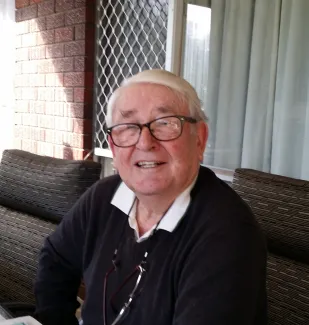An 81-year-old grandfather died while on holiday in England after medics failed to recognise he had suffered a stroke.
David Harding had travelled to England from Australia with his wife and daughter for the first time in five years to visit relatives. He was looking forward to seeing his older brother and finding out details for his family tree. Sadly, he never got that chance.
David became ill the day after he arrived in England. His family called paramedics and he was taken to Pinderfields Hospital in Yorkshire but sadly died two days later.
An investigation by the Parliamentary and Health Service Ombudsman (PHSO) found that the doctors who treated him failed in their care. While the Ombudsman could not say David’s death was avoidable, it found that he was denied the opportunity for treatment that could have led to his survival.
Ombudsman Rob Behrens said:
“This is a tragic case of a man and his family expecting to enjoy a holiday and quality time with relatives which ended in bereavement instead of reunion.
“David’s family have gone through an incredibly distressing ordeal and, moreover, been left uncertain about whether their husband and father could have survived if his care had been different. When things go wrong with someone’s medical care, they need to be recognised and addressed, and action must be taken to make sure it does not happen again.”
The Ombudsman’s investigation found David was inadequately assessed both in A&E and when he was taken to the ward.
Clinicians in A&E also didn’t consider information from the paramedics or nurses. That information would in all probability have led them to order a CT scan of his head. This would have shown signs of a stroke.
While on the ward, there was no attempt to investigate David’s neurological symptoms. He was then given drugs that can cause haemorrhage for people who have had a stroke.
David was only seen by a consultant 19 hours after his arrival – five hours later than medical guidance advises. It was at this late stage that a stroke was suspected and a CT scan arranged that led to his diagnosis.
Staff did not keep David’s family informed about the seriousness of his condition. This meant they couldn’t spend time with him when he was conscious or say goodbye.
David had been a pit worker in Doncaster and served three years in the army before leaving with his wife, Sandra, in 1971 in search of a better life in Australia. They settled in Perth and raised three children.
Sandra, 82, a retired business owner, said:
“David was fit and well before we left Australia. The day before he became ill, he had been watching his favourite football teams Leeds United and West Coast Eagles.
“The next morning, I found him on his knees holding his head and called the ambulance. The whole experience with the hospital has been absolutely dreadful. It’s something you can’t comprehend until it happens to you.
“I was faced with arranging his funeral, which involved a six-week wait for cremation, and then having to fly home without him, just with his ashes.
“I wake up at 3am and it’s the first thing I think of. I’m always thinking about it. It has really taken its toll. I’ve lost 16 kilograms through stress. I will never forget what happened.
“I complained to the Ombudsman because I wanted to know the truth. I never complain unless I have a proper reason. Something went drastically wrong at that hospital and I couldn’t understand why no one from the hospital was talking to us.”
Following the investigation, the Ombudsman recommended that Mid Yorkshire Hospitals NHS Trust acknowledge its failings and apologise to Sandra. The Trust was also asked to pay a financial remedy to David’s family and put in place an action plan detailing how it would learn from this incident in terms of recognition and treatment of stroke and communications.
The Trust has complied with all these actions.
Read the case summary.

